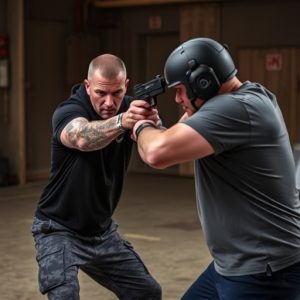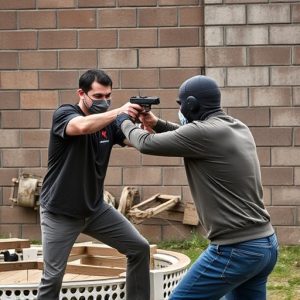Civilian Stun Gun Ownership: State Laws, Permits & Legal Age Limits
Before purchasing a concealed stun gun flashlight combo, thoroughly research your state's speci…….
Before purchasing a concealed stun gun flashlight combo, thoroughly research your state's specific laws regarding stun device ownership and carrying. Requirements vary widely from no license needed for adults to strict permits involving background checks, training, and fees. Age limits (18-21) are universal, and acquiring a taser often requires additional licenses and extensive training beyond the purchase. Strict regulations control combos due to dual functionality, encompassing measures like power output limits, ensuring responsible use while balancing citizen safety.
“Unraveling the complexities of civilian taser ownership begins with understanding state laws. This comprehensive guide navigates the intricate regulations surrounding stun gun acquisition, focusing on concealed carry permits, age restrictions, background checks, and unique accessory combinations like the popular concealed stun gun flashlight combo. By delving into these aspects, we aim to equip folks with the knowledge needed to make informed decisions regarding personal safety.”
- Understanding State Laws Regulating Stun Gun Ownership
- Requirements for Concealed Carry Permits: A Comprehensive Overview
- The Legal Age Limit: Who Can Own a Stun Gun?
- Background Checks and Licensing Procedures
- Restrictions on Stun Gun Accessory Combos: Flashlights & More
Understanding State Laws Regulating Stun Gun Ownership
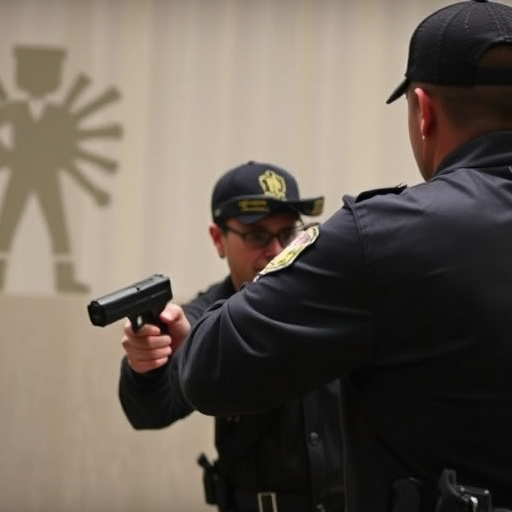
Understanding state laws regulating stun gun ownership is crucial before considering the purchase of a concealed stun gun flashlight combo. Each U.S. state has its own set of regulations regarding the possession and carrying of stun devices, which can vary greatly from one location to another. For instance, while some states allow any individual over a certain age to carry a stun gun without a license, others mandate formal training and certification for their use. Additionally, specific rules govern where and how these weapons can be carried—on person, in vehicles, or openly displayed.
When researching your state’s laws, pay close attention to the requirements for acquiring a concealed carry permit, which is often necessary for stun gun ownership. This process typically involves background checks, safety courses, and application submissions to local law enforcement agencies. Further, be aware of any restrictions on the type, power output, or capacity of stun devices permitted for civilian use, as well as any registration or licensing fees associated with ownership.
Requirements for Concealed Carry Permits: A Comprehensive Overview
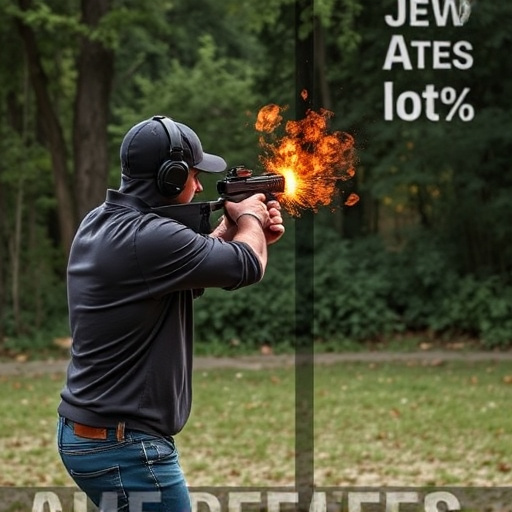
In many states, individuals seeking to carry a concealed stun gun flashlight combo for self-defense must obtain a special permit, often referred to as a Concealed Carry Weapon (CCW) or Concealed Carry Permit. These permits are subject to strict eligibility criteria that vary by jurisdiction. Typically, applicants must demonstrate proficiency in the safe use of the device and pass a background check. Some states mandate minimum training hours or completion of a certified safety course, ensuring citizens are equipped with the necessary knowledge to handle such devices responsibly.
The process involves submitting an application, paying fees, and undergoing interviews or written assessments. Once approved, permit holders must adhere to specific rules regarding where and how they can carry their concealed stun gun flashlight combo, often including restrictions on public spaces and vehicles. Understanding these requirements is essential for those considering carrying a concealed defense tool, ensuring compliance with state laws to avoid legal repercussions.
The Legal Age Limit: Who Can Own a Stun Gun?
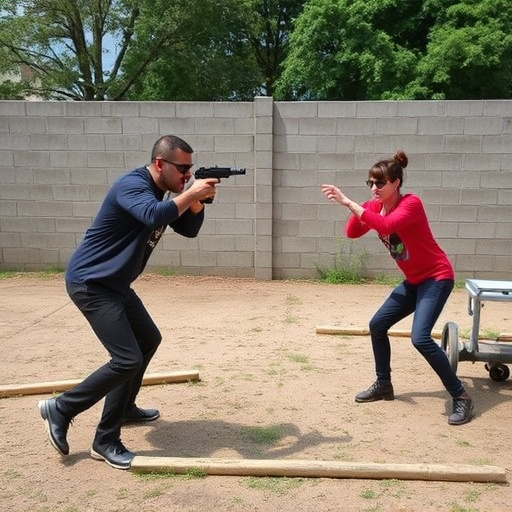
In most states, there is a specific legal age limit for owning a stun gun, also known as a taser or electroshock weapon. This restriction is in place to ensure responsible use and prevent access by individuals who may misuse or abuse such devices. The minimum age requirement typically ranges from 18 to 21 years old, depending on the jurisdiction. It’s crucial to check the state laws where you reside, as regulations can vary widely across different regions.
When considering a concealed stun gun flashlight combo, potential owners must ensure they meet or exceed the legal age limit. These devices, often compact and easily concealable, are designed for personal protection. However, their use is subject to the same age restrictions as standard stun guns. Parents, guardians, and law enforcement agencies should educate themselves and those within their care about these regulations to avoid any legal complications related to stun gun ownership.
Background Checks and Licensing Procedures
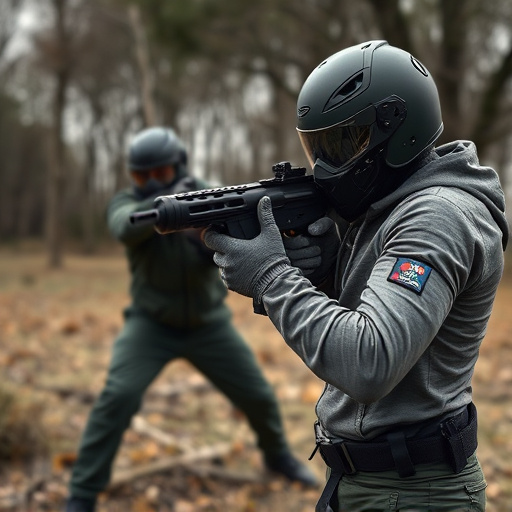
In many states, acquiring a civilian taser goes beyond simply purchasing the device; it involves navigating strict legal requirements that include comprehensive background checks and licensing procedures. These safeguards are designed to ensure responsible ownership and minimize potential risks associated with stun guns. The process typically commences with an applicant undergoing a thorough criminal history check, which scrutinizes their past conduct and ensures they meet the moral standards required for weapons possession.
Licensing often involves additional steps, such as completing a training course that teaches safe handling, legal implications, and defensive use. Some states even mandate specific types of training, like those focusing on de-escalation techniques and the responsible use of force. Upon successful completion of these requirements, applicants can apply for a license to carry a concealed stun gun flashlight combo, subject to further state-specific regulations.
Restrictions on Stun Gun Accessory Combos: Flashlights & More
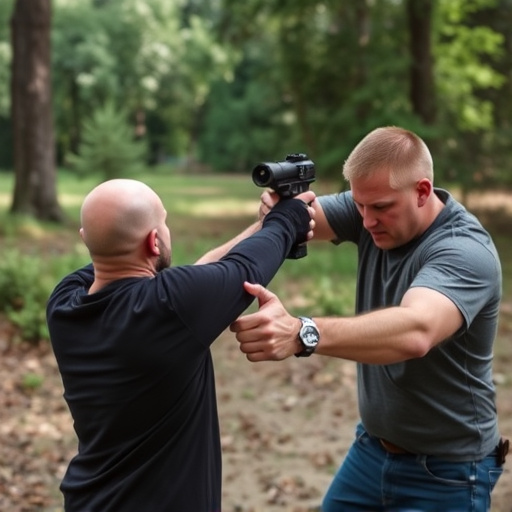
In many states, there are stringent regulations on the sale and possession of stun guns, especially when combined with accessories like flashlights. The so-called concealed stun gun flashlight combos have become a point of interest for civilians seeking personal protection, but they also face stricter scrutiny under state laws. These combo devices offer the dual functionality of a stun gun and a tactical flashlight, making them appealing to those looking for an integrated self-defense tool.
State regulations often restrict the sale of such combinations to ensure public safety and prevent misuse. Requirements may include age restrictions, background checks, waiting periods, and specific training or licensing for ownership. Some states also limit the power output of stun guns, especially when integrated into flashlights, to reduce the risk of severe injuries. These restrictions aim to balance the rights of citizens to protect themselves with the need to prevent accidental harm or criminal misuse of such powerful devices.
When considering civilian tasers, from concealed carry permits to background checks, understanding state laws is paramount. Each jurisdiction has unique requirements, especially for popular combinations like concealed stun gun flashlights. Staying informed ensures you comply with regulations and make safe, legal decisions regarding self-defense tools. Always consult local authorities and legal professionals for the most accurate and up-to-date information.

